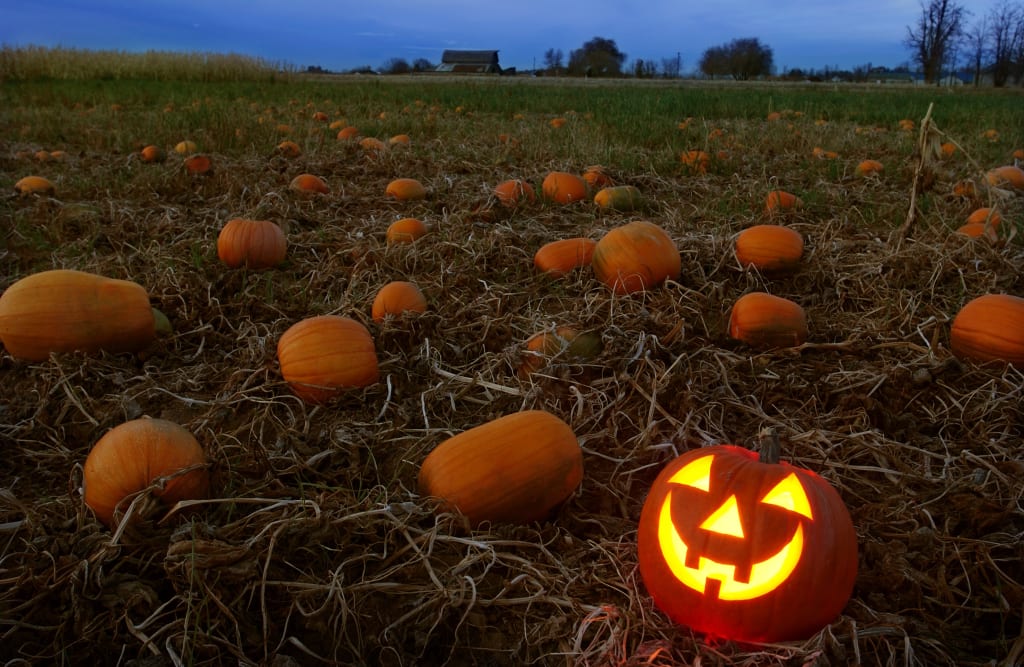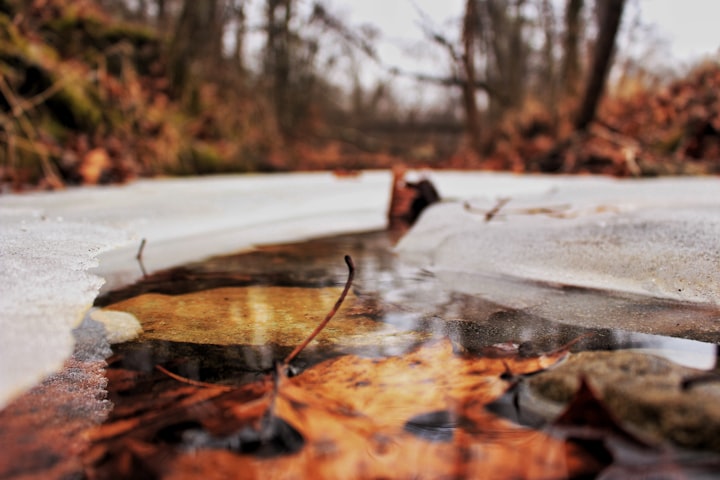Ten-time Winner
In late summer, when the Red Moon glows fire orange around Haystack Peak, magical things can happen.

Ask anybody in these parts, and they’ll tell you. Nobody grows a finer pumpkin than Walt Spitzel. People surely tried. Can’t be done. Walt took the blue ribbon in the pumpkin division at the Shikellamy County Fair for the last nine years running.
It’s no cakewalk growing pumpkins in the Adirondacks either. We have fewer frost free days than pumpkins need, especially giants like the Mammoth Gold, one of Walt’s perennial winners. Not enough heat and barely enough sunshine for the really big boys, let alone "champeen" breeds like the Happy Jack. That pumpkins grew at all in the Adirondacks is itself a feat of magic. Then again, on late summer nights when the Red Moon glows fire orange through streaky clouds surrounding Haystack Peak and the sorrowful barn owl soars over the farm fields searching for a sorrier mouse, inexplicable things happen just the same. Things that folks in these parts only mention in a whisper.
But good old Walt. Nothing deters him. Not mountain mythology, nor the screech of barn owls, nor the lack of a decent growing season. More like, they encouraged him to think smarter and try harder, starting his pumpkins indoors, waiting for the spring rains to taper off. Unlike yours and mine, each of his seedlings takes, too, pushing themselves out of the soil like little butterflies, reaching toward the sunlight. He calls the sprouts “his babies.”
And he sings to ’em. His neighbor, old Mrs. Ringel, will testify that she’s heard Walt a-singing away.
Once while we were enjoying our apple pie with cheddar cheese at the Saranac Diner, Mrs. Ringel shared one of Walt’s songs. “He sings homemaders,” she explained. “Oh, like, ‘Little seed, little seed, where’s your sprouty head? Little seed, little seed, push up through your bed.’”
Of course we chuckled, especially over the "sprouty head" part. But mostly because Mrs. Ringel has a wobbly church voice. You know the kind—you never know where a note’s going to land until she’s done singing it?
“Walt sounds like Willie Nelson,” Mrs. Ringel said, fingering a hair protruding from her flabby goose neck. “S’pose it’d be better if he wrote songs like Willie Nelson.”
But Walt already had a special talent—pumpkin growing. Soon as the daily temperature hit seventy, Walt transferred all his babies to a sprawling patch on the sunniest side of the Spitzel family farm, each to its own mound, digging a moat around every one to thoroughly water the roots.
All the things Walt did for his pumpkins, just about anyone could do, except maybe singing ’em dippy songs. We tried crooning, and in much better voice (we don’t mind telling you) than old Mrs. Ringel, but our pumpkins never even placed, not one time.
We suspected it was Walt’s special fertilizer that made him the winner year in and year out. Once the plants were in the field, he sprinkled them with this concoction every three weeks—an old Spitzel family secret that worked better than anything you could buy anywhere. The base was some fishy-smelling powder he extracted from lake mackerel.
Then he’d add a few glug-glugs of water and mix the whole thing with a paint stirrer from Treacle’s True-Value Hardware on Loden Street. If Treacle’s ever went belly up, who knows? Maybe Walt’s pumpkins would slip to second, even third place.
Those of us who could bought from Treacle’s until their shelves were bare, just to keep them in business one more year. We all wanted to beat the suspenders off Walt—next year. This year’s blue ribbon belonged to him. It was his destiny to be the premier ten-time consecutive first-place winner in Shikellamy County.
Every year, all of Walt’s pumpkins were exceptional. They had plenty of running room; each one prettier than the next, with a vine like a green carpet. But this season, Walt had the star pumpkin. A Happy Jack with a deep orange color—a standout who sparkled from the day he sprouted. Hard to explain, but this guy glistened more than a chunk of hard coal lying in the sun. Walt named it “Junie,” short for Junior—Walt himself was a junior.
Junie would sway when Walt approached. Other times he shrugged his leaves if Walt asked him a question like, “Junie, are you getting enough water?” Junie would jostle up and down as if saying yes. “Junie, getting plenty of heat, are ya?” Junie would shrug his stem at that. Heat was a scarce commodity in the Adirondacks.
As the summer wore on, through the Hay Moon and the Grain Moon, Junie got bigger and rounder and deeper orange and even more sparklier.
One day, Walt was hoeing weeds when the neighbor widow from up the hill strolled past. She was a frail young thing with a sad story. A couple years ago, her husband died in a farming accident. Ever since, all during growing season, she took long walks. Never said a word to Walt in two years until today.
“Excuse me,” she called until Walt looked up from his work. “Sorry to bother you, but do you hear singing?”
Walt cracked a nervous smile. All the singing he’d done for Junie? Well, sometime in July, Junie began singing back. “I sing—while I weed. Work goes faster.”
“Sounds like a child’s voice.” You could almost hear her heart thump when she said child. "Didn’t you hear it?”
Walt shrugged. He wasn’t about to tell the neighbor widow he had a singing pumpkin.
By this time, we’d heard Walt had a spectacular fifteen-pound pumpkin—the best in twenty years. We hiked out there to see it. “A beauty. So orange and sparkly!” we said. “A ten-time winner. Yessiree, that ribbon’s in the bag, Walt.”
Since Walt was a pumpkin man, he knew Junie’d take him straight to the top. But Walt had other plans for Junie.
“Junie,” he said, a few days before the county fair. “You’re special—no doubt. A blue-ribbon champ. That’s why you need to do something important for me, for the neighbor widow, something you got in you.”
After Walt was done whispering, Junie bobbed up and down, from stem to end. Walt plucked Junie from his vine, wrapped him in a light blue blanket, and nestled him in an old basket he’d found in the root cellar. That night, once the Red Moon settled atop Haystack Peak, once the screech of the barn owl settled over the late summer night, he placed the wicker basket on the neighbor widow’s doorstep.
Walt had a fine pumpkin in the fair that year. But not the best in the county, which disappointed everybody but Walt. He barely recognized the happy woman pushing a stroller around the fairgrounds, singing softly to her little sprout. But the sparkling baby boy who swayed right and left and bobbed up and down as the neighbor widow wheeled him by Walt’s second-place pumpkin? That boy he knew in an instant.
About the Creator
Gale Martin
Gale finally found a constructive outlet for storytelling in her fourth decade, writing creatively since 2005, winning numerous awards for fiction. She's published three novels and has a master’s in creative writing from Wilkes University.







Comments
There are no comments for this story
Be the first to respond and start the conversation.